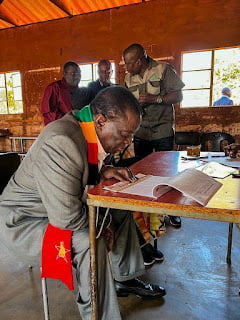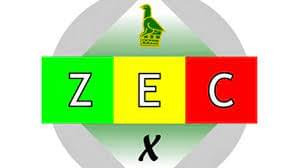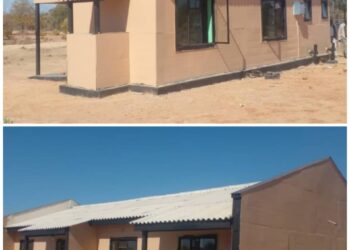ALL National Assembly and local authority election candidates will receive copies of the voters’ roll by Thursday this week, after the Zimbabwe Electoral Commission (ZEC) distributed the national voters’ register to all Presidential election candidates on Tuesday.
In total, 637 candidates will contest for National Assembly seats, while 4 800 others will stand in local authority elections.
Candidates will only receive voters’ rolls specific to the areas they will be contesting.
ZEC is now finalising processing over 17 000 applications for postal voting from members of the uniformed forces, as well as election officials intending to cast their votes ahead of the August 23 polls when they will be on official duty.
As preparations for the plebiscite gather momentum, the polls management body is also rounding up recruitment of 150 000 people to work as election officials.
Procurement of most voting materials such as ballot paper, indelible ink and marking pens is almost complete.
Speaking to The Sunday Mail, ZEC chief elections officer Mr Utloile Silaigwana said: “The commission has already issued copies of the national voters’ roll to Presidential candidates at the national Multi-Party Liaison Committee meeting held on July 11, 2023.
“Candidates for the National Assembly and local authorities are likely to receive their copies on or before July 20, 2023.”
Processing of applications for advance voting, he said, was underway after the window for applications closed on July 5.
“The total number of applicants amounts to 17 869.
“The commission is currently processing all submitted applications to determine those eligible for postal voting.”
Postal voting is provided for under Section 71 of the Electoral Act. It states that registered voters who will be unable to vote at their polling stations on election day because they will be on official duty are eligible for postal voting.
The process is open to those who apply not more than 14 days after sitting of the Nomination Court.
Successful applicants receive their voting material in advance and will be
required to send their votes in sealed envelopes to the chief elections officer at least 14 days before polling day.
The chief elections officer will then distribute the postal votes to their respective constituencies within seven days of the date of the actual poll.
The postal votes are later dispatched to their respective ward centres before polling day.
They are only opened for counting at the ward centre when counting of votes cast on polling day commences.
On ballot paper production, Mr Silaigwana added: “The commission will be guided by Section 52A of the Electoral Act on the number of ballot papers to be printed.
“The section states that the number of ballot papers printed should not exceed by more than 10 percent the number of registered voters.
“The commission will publish the total number of ballots printed in the press.”
There are 6 598 523 voters on the voters’ roll.
He said training of election officers has begun and will be done in phases.
“The commission will employ about 150 000 electoral officers for the harmonised elections,” he said.
“Section 10 of the Electoral Act is clear on where the commission gets human resources, and that is the public service and statutory bodies.
“The training of electoral officers will be done in phases.
“Training of constituency election officers was conducted, next is the training of wards election officers, then presiding officers and lastly polling officers.”
The procurement of essential election material, he said, “is at around 80 percent, with the rest in progress”.
“The public is reminded that the commission is adequately funded to conduct these elections, with essential material such as ballot paper, indelible ink, marking pens and ballot boxes already in place.”
He said eight foreign observer missions have applied for accreditation, with the window for receiving applications closing on August 19.
According to ZEC’s elections calendar, the final list of polling stations will be published early next month. Sunday Mail










